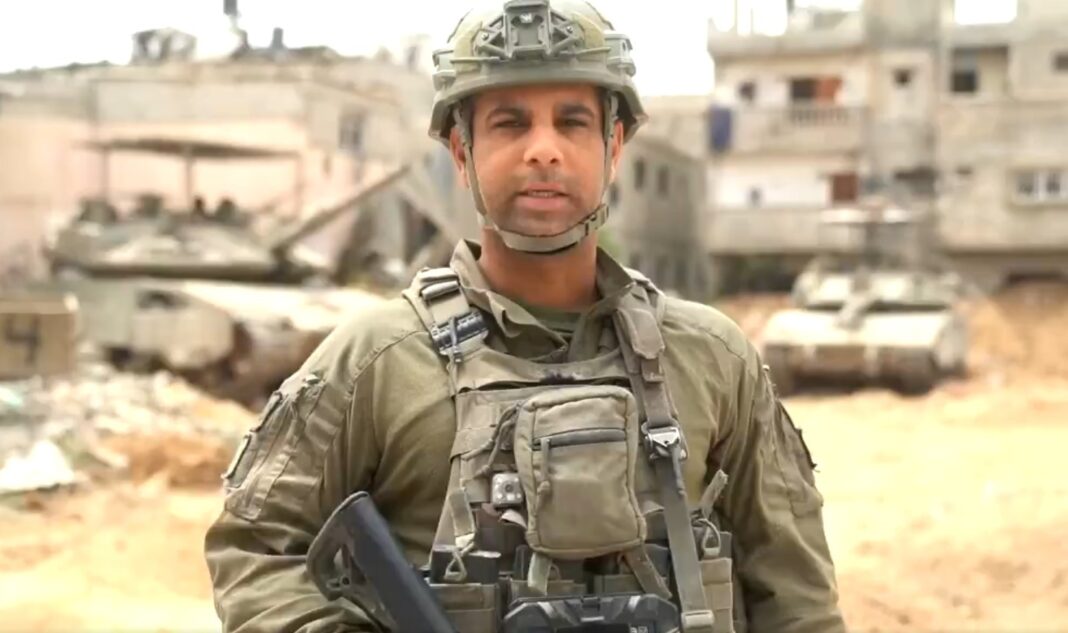On what should have been her seventh birthday, little Hind Rajab did not blow out candles. Instead, her name echoed through the halls of international justice. On May 3, 2025, the Hind Rajab Foundation filed a war crimes complaint at the International Criminal Court (ICC), naming the Israeli military officer they say is responsible for Hind’s death, as well as the deaths of her family and two medics who tried to save her.
The accused is Lieutenant Colonel Beni Aharon, commander of the 401st Armored Brigade of the Israel Defense Forces. According to the Foundation’s year-long investigation—supported by open-source evidence, satellite imagery, eyewitness accounts, and forensic analysis—it was under Aharon’s direct command that an Israeli tank shelled a civilian car in Tel al-Hawa, Gaza City, on January 29, 2024. Six-year-old Hind was in the car, fleeing with her family. All six family members were killed instantly. Hind survived the initial strike, wounded and trapped, whispering into a phone: “I’m so scared… please come.” Hours later, the rescue ambulance sent to retrieve her was also destroyed. Her body was found a week later beside her cousin Layan and the charred remains of the medics.
“Today, Hind should have been blowing out candles,” said Diab Abu Jaja, co-founder and president of the Hind Rajab Foundation. “Instead, we are naming her killer. This is only the beginning. We are coming for every name, every link in the chain, with the law and with truth.”
The Legal Strategy: One Name, Many to Follow
The ICC complaint is the first in what the Foundation says will be a wave of international legal actions. Alongside Lt. Col. Aharon, the Foundation has identified the specific battalion, field commanders, and operational officers responsible for the attack. These names, they declare, “are no longer protected by silence.”
Future filings are expected in multiple jurisdictions under universal jurisdiction laws, which permit prosecution for war crimes regardless of where they occurred or who committed them. This strategy aims to pursue not only those who carried out attacks but those who issued orders, facilitated cover-ups, or enabled impunity.
“This is not about revenge,” said Abu Jaja. “It is about law, evidence, and honoring the humanity Hind was denied.”

Hind’s Story Is Gaza’s Story
Hind Rajab’s case captured the world’s attention in early 2024 because of its haunting clarity: a child pleading for help, a confirmed location, a rescue mission, and then death—all recorded in real time.
But hers is not an isolated tragedy.
Since October 7, 2023, over 17,000 children have been killed in Gaza by Israeli forces, according to Gaza’s Ministry of Health and corroborated by humanitarian organizations. Thousands more are missing under rubble or suffering from starvation and trauma.
“These children were not combatants,” said Abu Jaja. “They were toddlers, students, siblings—just like Hind. Their deaths are not collateral damage. They are evidence of a system that kills with deliberation.”
“Hind gave us a name and a voice,” he continued. “But the 17,000 others? They are all Hind Rajab in one way. They, too, asked for help. And they, too, were met with silence and fire.”
“Offensive Litigation” as a Weapon of Justice
The Hind Rajab Foundation isn’t waiting for global institutions to act. It is pursuing what it calls “offensive litigation”—a proactive legal campaign that targets rank-and-file soldiers, especially dual nationals, in their home countries where immunity claims do not hold.
“We’re not just chasing Netanyahu or Gallant,” Abu Jaja said. “We’re going after the soldiers who pulled the triggers, and the officers who said, ‘fire.’”
In at least 30 cases, Israeli soldiers fled countries where legal action was filed. “Some were even smuggled out by Israeli diplomatic staff,” he added. “That tells you they know they’re not safe.”
The Foundation also tracks “traveling soldiers”—combatants who go abroad between Gaza deployments. “They go to Europe, Asia, Latin America. We track. We wait. Then we file.”
“Kill and Kill and Kill”: Israel’s Genocide and the Collapse of Its Enforcers
On May 13, 2025, Israeli police First Sergeant Igor Pibenev took his own life. Once celebrated for killing Palestinians during the October 7 Hamas operation, Pibenev became another name in a growing list of Israeli soldiers dying by suicide since the war began.
According to IDF figures, 38 Israeli soldiers are suspected to have taken their own lives since late 2023. Twenty-one occurred in 2024 alone, more than any year in the last decade.
The IDF has responded with a 24/7 hotline and 800 deployed mental health officers, but the crisis appears rooted in something deeper than trauma.
It is moral collapse—a breakdown not from what soldiers have seen, but what they’ve done.
This echoes the chilling prophecy of Arnon Soffer, Israeli demographer and strategist behind Israel’s separation policy, who warned in 2004:
“If we want to remain alive, we will have to kill and kill and kill. All day, every day.… The only thing that concerns me is how to ensure that the boys and men who are going to have to do the killing will be able to return home… and be normal human beings.”
They aren’t.
Israeli soldiers are unraveling under the psychological weight of mass killing. “We’re watching the collapse of the perpetrator state,” said Abu Jaja. “It’s not just Gaza that is being destroyed. It’s Israel’s own psyche.”
The Silence of the West
Despite the overwhelming evidence, the story of Hind Rajab and the ICC complaint has been largely ignored by Western media. No primetime segments. No front-page stories. No official statements.
“It’s shameful,” Abu Jaja said. “The West claims to care about human rights. A six-year-old girl called for help. We have her last words. We have the evidence. Where is the outrage?”
This silence, he argues, is itself a form of complicity. “They treat our children’s deaths as statistics. We treat them as people. And we remember their names.”
A Crack in the Wall of Impunity
International momentum is building. In addition to the ICC filing, new legal cases are emerging globally:
- In Morocco, a war crimes case against IDF reservist Moshe Avichzer is proceeding under universal jurisdiction laws.
- In Brazil, an Israeli soldier escaped prosecution with apparent help from the Israeli embassy.
- In November 2024, the ICC issued arrest warrants for Netanyahu and Yoav Gallant on charges of genocide.
- The legal coalition Global 195 has compiled over 130 testimonies and is building case files on hundreds of Israeli military personnel.
Meanwhile, Israel is tightening control over its soldiers’ social media activity—an effort to stem the flow of evidence being used by independent investigators to reconstruct crimes.
Hind’s Legacy: Law, Memory, and Defiance
The Hind Rajab Foundation is determined to ensure that Hind’s death marks not just an atrocity—but a turning point.
“This isn’t just about one child, or one complaint,” said Abu Jaja. “It’s about the systemic disregard for Palestinian life that has defined this conflict for generations.”
“And it’s about the world’s silence,” he added. “Because Hind asked for help. Because she waited. Because we failed her. And now, through law and memory, she will not be forgotten.”



